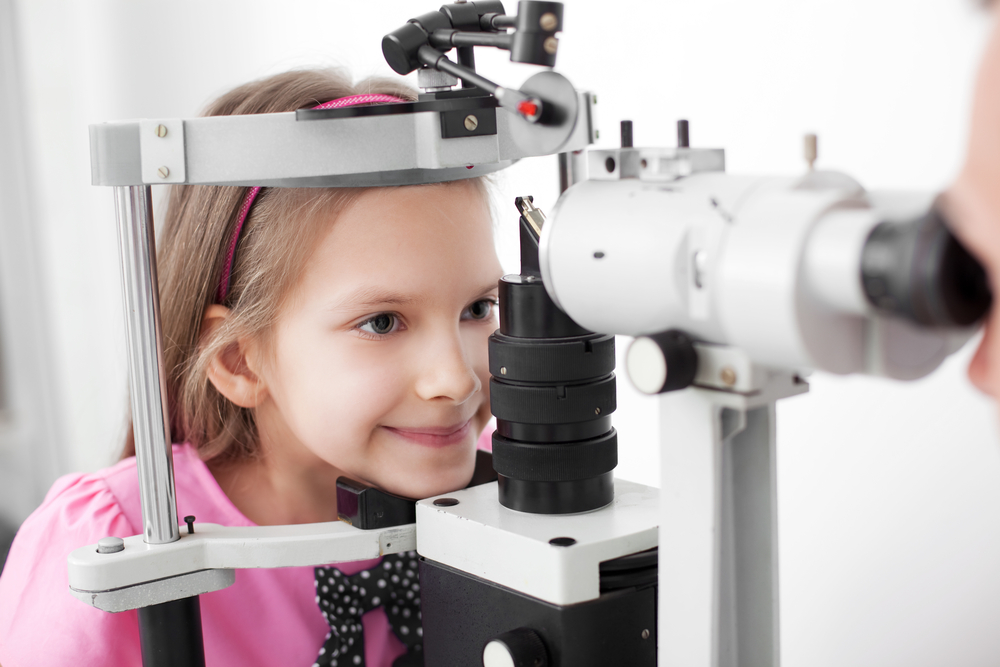
Pediatric eye exams are designed to screen your child's vision and check for any eye diseases or abnormalities. They are done by pediatric optometrists, specialists trained in diagnosing and treating eye problems in children. These exams involve a series of tests that assess different aspects of vision and eye health, including visual acuity, eye alignment, and ocular health.
Pediatric eye exams are not just for children who are struggling with their vision. Even if your child has no symptoms of eye trouble, they should still get regular eye check-ups. Early detection and treatment of vision problems can significantly improve your child's eye health and overall quality of life.
The Importance of Pediatric Eye Exams
Pediatric eye exams are a critical aspect of your child's health care. Vision problems can significantly impact a child's development and academic performance. Without proper vision, a child may struggle with everything from reading and writing to sports and other physical activities. The unfortunate truth is, children often don't realize they have a vision problem, leading to unnecessary struggles in their daily life.
The American Optometric Association recommends that children have their first eye exam at six months of age, another at age three, and again just before they start school. Regular eye exams are crucial in the early detection and treatment of common childhood vision problems such as strabismus (crossed eyes), amblyopia (lazy eye), and refractive errors (myopia, hyperopia, and astigmatism).
Pediatric eye exams can also detect signs of non-vision related health issues. Certain systemic diseases, including diabetes and hypertension, can manifest through various eye problems. Regular eye check-ups can help catch these conditions early, allowing for timely treatment and management.
How Often Should Your Child Get a Pediatric Eye Exam?
The frequency of pediatric eye exams can vary depending on your child's age, risk factors, and whether they already wear corrective lenses. School-age children should ideally have an eye exam every one to two years if they have no visual problems. However, if your child requires eyeglasses or contact lenses, annual exams are recommended.
Children who are at risk of developing eye problems may need more frequent eye exams. These risk factors can include premature birth, family history of eye disorders, certain systemic diseases, or taking medications that can affect the eyes. If your child falls into any of these categories, your optometrist will likely recommend more frequent check-ups.
The Role of Pediatric Eye Exams in Detecting Vision Problems Early
One of the significant advantages of regular pediatric eye exams is early detection of vision problems. Many eye conditions, if caught early, can be corrected or managed effectively, thus avoiding long-term vision damage. Early intervention is critical, especially for conditions like amblyopia (lazy eye), where treatment effectiveness decreases as the child grows older.
Pediatric eye exams can detect several vision problems that might not be evident in a routine school or pediatrician's vision screening. For instance, school screenings often miss conditions like astigmatism or certain types of refractive errors. A comprehensive eye exam, on the other hand, can accurately diagnose these conditions, ensuring your child gets the appropriate treatment.
Regular eye exams can also track changes in your child's vision over time. This is particularly important for children who wear glasses or contact lenses, as their prescription may need to be adjusted periodically.
Common Vision Problems Detected Through Pediatric Eye Exams
Pediatric eye exams can uncover a variety of vision and eye health issues. Some of the most common vision problems diagnosed through these exams include refractive errors (nearsightedness, farsightedness, and astigmatism), amblyopia (lazy eye), strabismus (crossed eyes), and color blindness.
Refractive errors are the most common cause of vision problems in children. These occur when the shape of the eye prevents light from focusing directly on the retina, leading to blurred vision. Amblyopia, also known as lazy eye, is a condition where one eye has significantly worse vision than the other, often due to strabismus or a significant difference in refractive errors between the two eyes.
Strabismus, or crossed eyes, refers to a misalignment of the eyes. This condition can lead to amblyopia if untreated. Lastly, color blindness, though not as common, can also be detected during a pediatric eye exam. Early detection of these conditions can enable effective treatment and prevent long-term vision problems.
Pediatric Eye Exams and Your Child's School Performance
Vision plays a critical role in your child's learning and school performance. Studies estimate that up to 80% of learning in school-age children is visual. Therefore, any untreated vision problems can significantly hinder your child's academic progress.
Children with undiagnosed vision problems may struggle with reading, writing, and even concentration. They may also exhibit behavioral problems in school, often mistaken for attention deficit disorder or lack of interest. Regular pediatric eye exams can help diagnose and treat these vision problems, ensuring your child can fully engage in their learning environment.
Certain vision skills, such as eye tracking (the ability to keep the eyes on target when looking from one object to another), eye focusing, and eye teaming (the ability to coordinate and use both eyes together) are crucial for school activities like reading and writing. These skills are often assessed during a comprehensive pediatric eye exam.
Protect Your Child’s Vision Today
Regular pediatric eye exams are invaluable in safeguarding your child's vision and overall health. They play a crucial role in the early detection and treatment of vision problems, ensuring your child's healthy development and academic success. Make sure to schedule regular eye exams for your child - because their vision is a gift that deserves the best care possible.
For more information on the value of regular pediatric eye exams in protecting your child’s vision, contact Frame & Focus Eye Care. Available for eye care services for the Richmond, Pecan Grove, Four Corners, and Mission Bend, Texas communities. Call (832) 664-7900 to schedule an appointment today.












